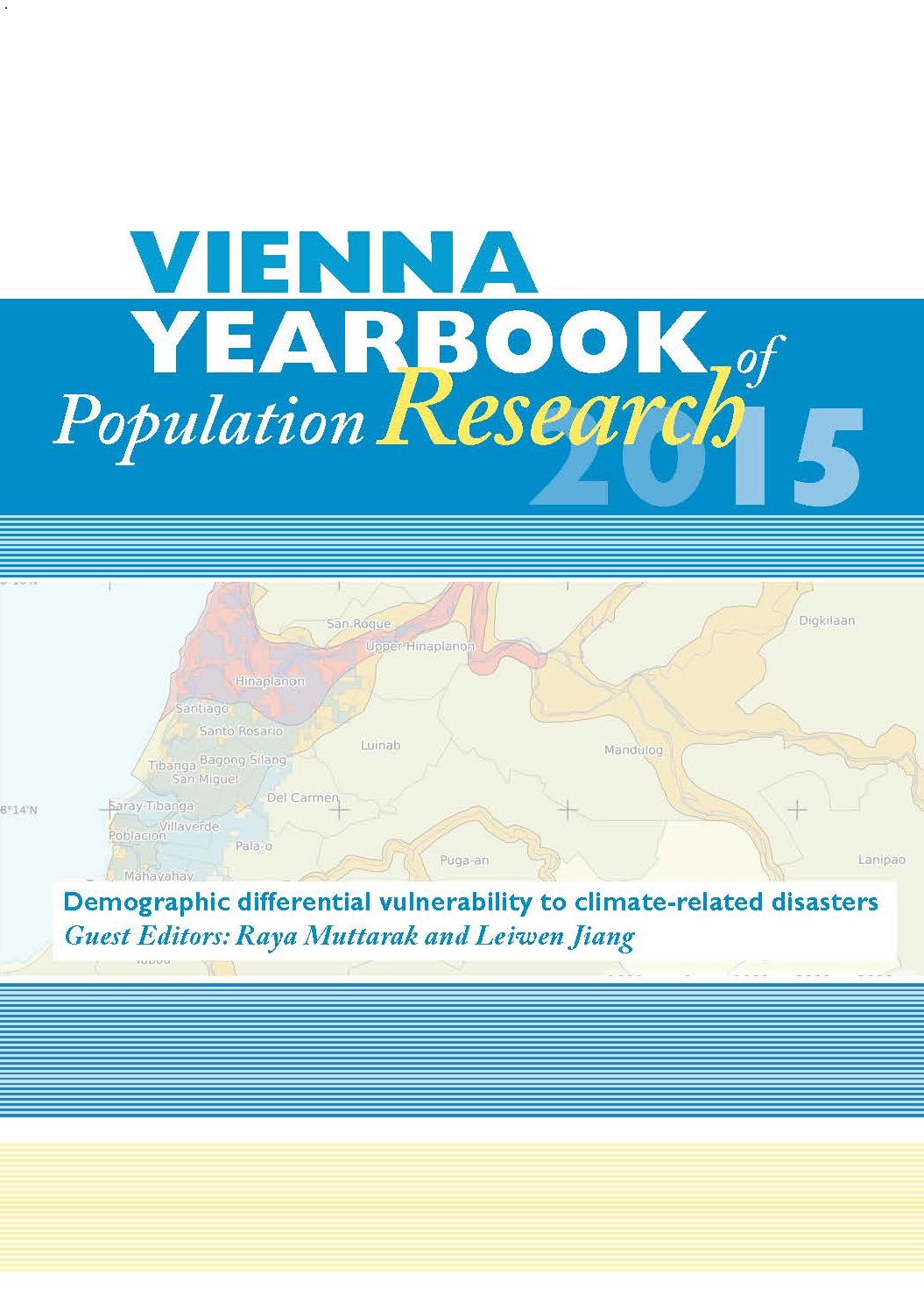
Vienna Yearbook of Population Research 2015, pp. 193-220, 2024/12/12
Special issue on Demographic differential vulnerability to climate-related disasters

Using data from Opinions about the Environment and Global Warming 2010, a nationally representative survey of 3900 adults, this study investigates demographic differentials in levels of concern about climate change and climate-relevant behaviours. The factor analysis of 11 environmentally friendly and carbon emissions reduction behaviours identifies two main factors that underlie climate-relevant behaviours: (1) efforts to save electricity and water, and (2) technical and behavioural changes. The multivariate analyses show that women and individuals with higher education are more likely than others to worry a great deal about global warming, and to make technical and behavioural changes. It may be the case that education is positively correlated with making technical and behavioural changes, but not with making efforts to save electricity or water, because the former set of actions require more effort and knowledge to pursue, while the latter set of actions are commonly undertaken for economic reasons. Having concerns about global warming and having experienced environmental problems are also associated with an increased adoption of climate-relevant behaviours.
Keywords: Demography; Environment; Climate Change; Gender; Thailand